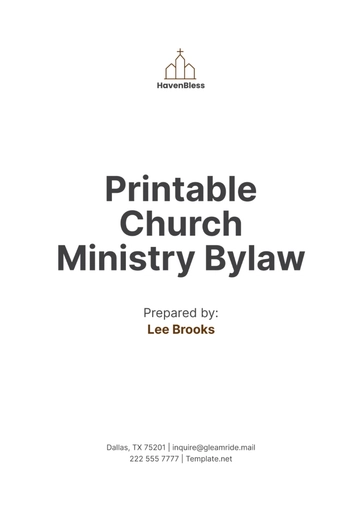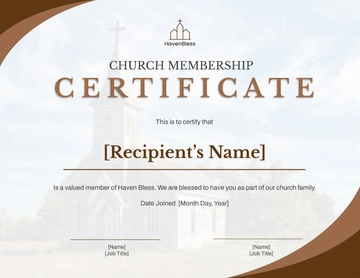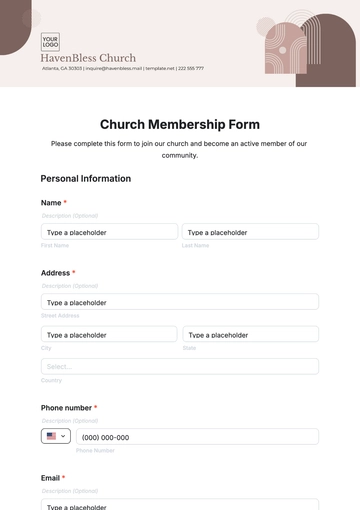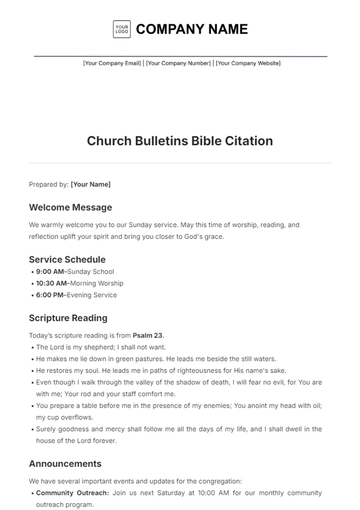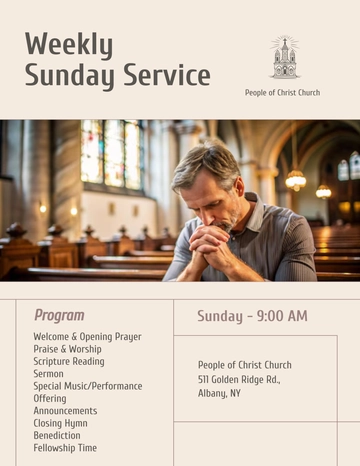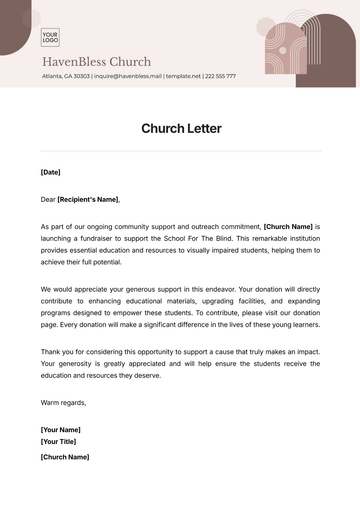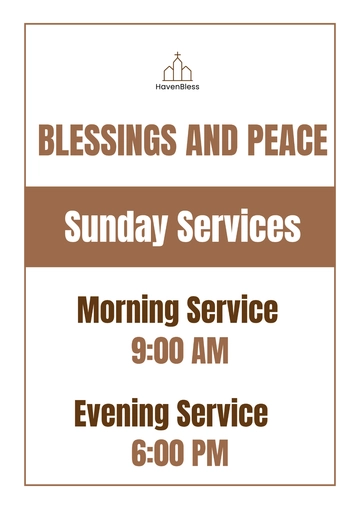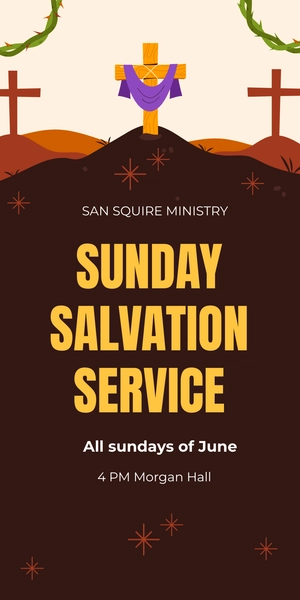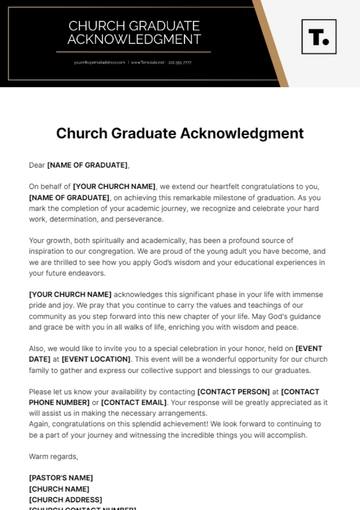Free Church Children Ministry Guide
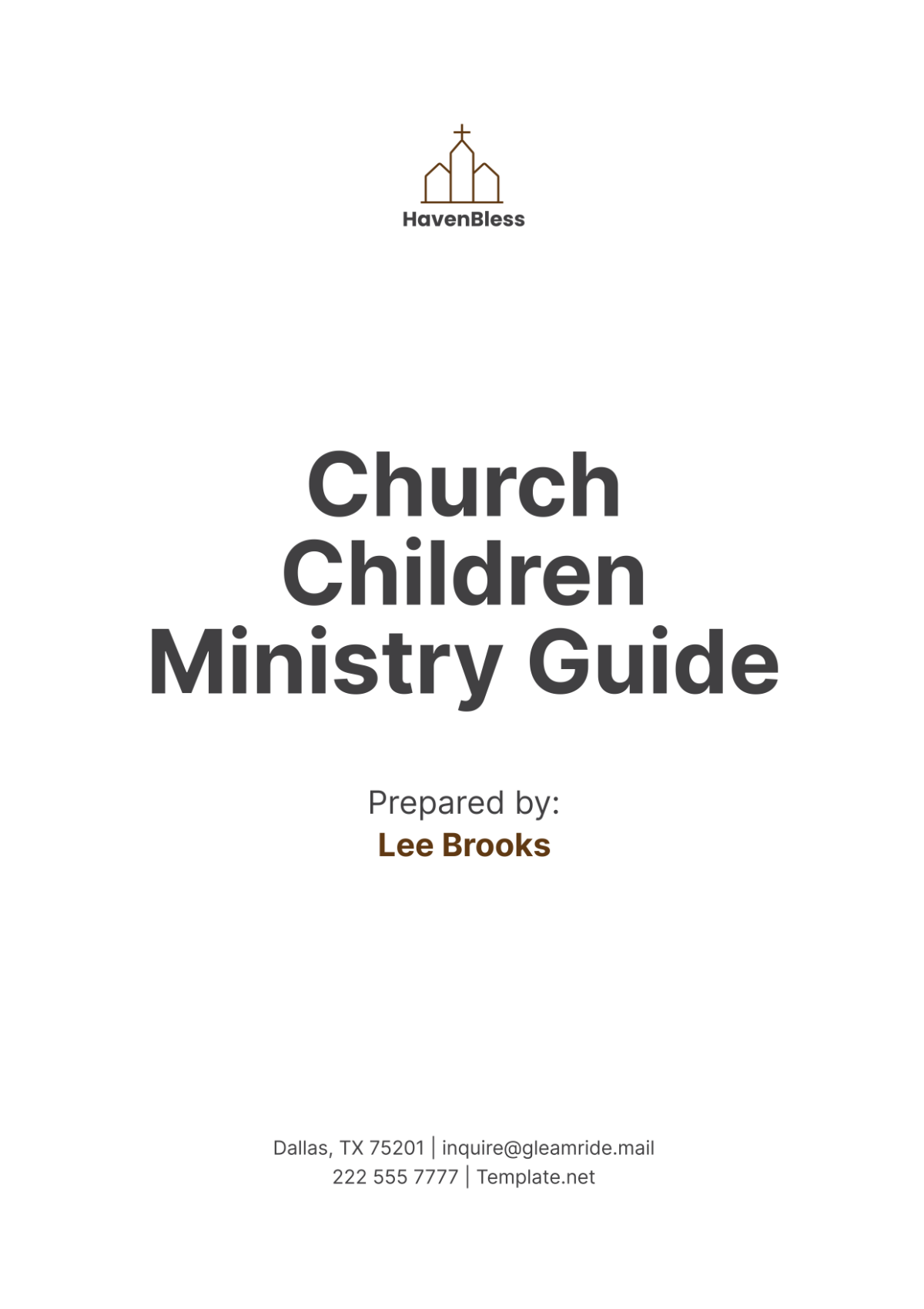
I. Introduction
A. Welcome Message
Purpose of the Guide
Welcome to the Church Children’s Ministry Guide, meticulously crafted by [Your Company Name] to serve as a comprehensive resource for all those involved in nurturing and guiding the children within our church community. This guide provides detailed information and practical guidelines to help church leaders, volunteers, and staff in effectively managing and enriching the Children’s Ministry. Our aim is to offer a robust framework that supports a nurturing, safe, and spiritually enriching environment for our children, ensuring they receive the best possible start in their Christian journey.Overview of the Children’s Ministry
The Children’s Ministry at our church is a vibrant and essential part of our faith community, dedicated to providing a solid foundation of Christian teachings for children from infancy through elementary school. Our programs are meticulously designed to impart biblical truths, foster spiritual growth, and create a strong sense of community among children. By integrating engaging activities, interactive learning, and supportive relationships, we strive to lay the groundwork for a lifelong faith journey for each child.
B. Mission Statement
Our Commitment
The mission of our Children’s Ministry is to actively partner with families in nurturing children who have a deep love for Jesus and a strong commitment to following His teachings. We are dedicated to providing a welcoming and secure environment where children can explore and understand God’s love, grow spiritually, and build meaningful relationships with their peers and mentors. Our mission extends beyond the classroom, aiming to support families in their role as primary spiritual nurturers of their children.
C. Vision Statement
Future Goals
Our vision is to see every child within our ministry grow into a mature, confident follower of Christ, prepared to make a positive impact on their community and the broader world. We envision a ministry where engaging worship experiences, age-appropriate teachings, and deep, meaningful relationships all contribute to the holistic spiritual development of each child. By fostering a supportive and vibrant environment, we aim to inspire children to embrace their faith and pursue a life of purpose and service.
II. Organizational Structure
A. Leadership Team
Roles and Responsibilities
The Leadership Team of our Children’s Ministry is comprised of dedicated individuals who play crucial roles in ensuring the smooth operation and success of the ministry. This team includes the Children’s Ministry Director, Assistant Director, and various coordinators who manage different age groups and activities. Each leader is entrusted with specific responsibilities, ranging from curriculum development and volunteer coordination to program planning and execution. Their collaborative efforts ensure that all aspects of the ministry align with our overarching goals and values.Children’s Ministry Director
The Children’s Ministry Director is responsible for overseeing the entirety of the ministry’s operations, including the development and implementation of the curriculum, coordination of volunteer efforts, and strategic planning for various programs and activities. This role requires a combination of visionary leadership, organizational skills, and a deep commitment to the spiritual development of children. The Director works closely with church leadership to ensure that the ministry’s objectives are in harmony with the church’s overall mission and vision.
B. Volunteer Staff
Recruitment and Training
Volunteers are the backbone of our Children’s Ministry, bringing enthusiasm, dedication, and a wide range of skills to their roles. We have a comprehensive recruitment process designed to attract individuals who are passionate about working with children and committed to our ministry’s values. This process includes background checks, interviews, and thorough training sessions to ensure that all volunteers are well-prepared to provide a safe and enriching experience for the children. Training covers essential topics such as child protection policies, emergency procedures, and effective teaching methods.Volunteer Roles
Volunteers serve in a variety of roles within the ministry, each contributing to the overall success and effectiveness of our programs. Roles include classroom teachers, assistant teachers, worship leaders, event organizers, and administrative support staff. Each role is vital in creating a dynamic and supportive environment for the children. Volunteers are encouraged to utilize their unique talents and skills, whether in leading educational activities, assisting with classroom management, or helping organize special events.
III. Programs and Activities
A. Sunday School
Curriculum Overview
Our Sunday School program is designed to offer age-specific classes that focus on teaching biblical stories, principles, and values in an engaging and interactive manner. The curriculum is carefully selected to ensure that it is both educational and entertaining, incorporating a variety of teaching methods such as storytelling, crafts, games, and songs. Each lesson is crafted to be age-appropriate, fostering a deeper understanding of biblical teachings and encouraging children to apply these lessons to their daily lives.Age Groups
Nursery (0-2 years): In the Nursery, the emphasis is on creating a safe and loving environment where infants and toddlers can begin to experience the foundational elements of Christian faith. Activities include simple Bible stories, soothing songs, and sensory experiences that introduce them to God’s love in a gentle and comforting way.
Preschool (3-5 years): The Preschool classes focus on introducing children to key Bible stories and basic Christian concepts through interactive storytelling, imaginative play, and hands-on activities. This age group begins to understand the core values of Christianity and starts to develop their own spiritual identity.
Elementary (6-11 years): The Elementary program provides a more in-depth exploration of biblical teachings, encouraging children to apply these principles to their everyday lives. Lessons are designed to be engaging and thought-provoking, incorporating group discussions, projects, and activities that help children connect with the material on a deeper level.
B. Vacation Bible School (VBS)
Annual Event
Vacation Bible School is a highlight of our summer programming, offering a week-long series of activities designed to immerse children in the Bible through fun and interactive experiences. Each year, VBS features a different theme that guides the week’s activities, lessons, and decorations. This theme helps create a cohesive and exciting experience for the children, encouraging them to learn about biblical principles in a vibrant and memorable way.Sample Schedule
The schedule for VBS is thoughtfully designed to balance learning, play, and fellowship. Below is a sample schedule of a typical day:Time
Activity
9:00 AM
Welcome and Registration
9:30 AM
Opening Worship and Skits
10:00 AM
Bible Lesson
10:30 AM
Craft Time
11:00 AM
Snack Break
11:30 AM
Games
12:00 PM
Closing Session
12:30 PM
Dismissal
C. Midweek Programs
Children’s Choir
The Children’s Choir is an integral part of our midweek programming, providing children with the opportunity to develop their musical talents and participate in worship. Weekly rehearsals focus on teaching children a repertoire of songs that they perform during church services and special events. This program not only enhances their musical skills but also helps them experience the joy of worship through song.Bible Study Groups
Our Bible study groups offer a more intimate setting for children to explore biblical teachings and engage in meaningful discussions. These small group studies are tailored to different age groups, allowing for age-appropriate exploration of biblical themes and principles. The groups provide a space for children to ask questions, share their thoughts, and build strong relationships with their peers and leaders.
D. Special Events
Christmas and Easter Programs
Our Christmas and Easter programs are special occasions that celebrate the central events of the Christian faith: the birth and resurrection of Jesus Christ. These programs often include performances, pageants, and other creative activities that bring the significance of these holidays to life. Children participate in rehearsals and preparations, learning about the meaning of these holidays and how they relate to their faith.Family Fun Days
Family Fun Days are designed to foster fellowship and community among families within our church. These events include a range of activities such as picnics, games, and outdoor adventures. By providing opportunities for families to spend quality time together, we strengthen the bonds within our church community and create lasting memories for both children and adults.
IV. Policies and Procedures
A. Safety and Security
Check-In and Check-Out Procedures
Ensuring the safety of all children is a top priority in our ministry. We have implemented a rigorous check-in and check-out procedure to manage the arrival and departure of children. Parents or guardians must sign their children in at the beginning of each session and sign them out at the end. Only individuals who have been authorized by the parents are allowed to pick up the children. This procedure helps ensure that each child is released only to their designated guardian, maintaining a secure environment.Background Checks and Training
To maintain the highest standards of safety and care, all volunteers and staff undergo thorough background checks before being allowed to work with children. In addition to background checks, volunteers and staff participate in comprehensive training programs that cover our safety policies, child protection guidelines, and emergency procedures. This training equips them with the knowledge and skills needed to create a safe and supportive environment for all children.
B. Health and Wellness
Illness Policy
To promote a healthy environment and prevent the spread of illness, our policy requires that children who exhibit signs of illness, such as fever, vomiting, or contagious conditions, stay home from ministry activities. If a child becomes ill during a session, we have procedures in place to contact parents promptly and ensure the child receives appropriate care. This policy helps protect the health of all children and staff members.Allergy Awareness
We are committed to ensuring the safety of children with allergies by maintaining up-to-date information on each child’s allergies and dietary restrictions. This information is communicated to all volunteers and staff involved in preparing snacks and organizing activities. We take great care to ensure that all snacks and activities are safe for children with allergies, and we have procedures in place to handle allergic reactions if they occur.
C. Emergency Procedures
Fire and Evacuation Drills
Regular fire and evacuation drills are conducted to ensure that both children and volunteers are familiar with emergency procedures and evacuation routes. These drills are designed to be informative and practical, helping everyone understand how to respond quickly and calmly in the event of an emergency. Emergency exits are clearly marked, and evacuation routes are well-planned to ensure a smooth and orderly evacuation process.Medical Emergencies
In the event of a medical emergency, we have first aid kits readily available and staff members trained to handle minor injuries and provide initial medical assistance. For more serious emergencies, we have established protocols for contacting emergency services and notifying parents. Emergency contact information is kept on file for each child to ensure that we can reach parents quickly if needed.
V. Curriculum and Teaching
A. Curriculum Selection
Criteria for Selection
The selection of curriculum for our Children’s Ministry is guided by criteria that ensure both educational quality and alignment with our ministry’s values. We choose curriculums based on their biblical accuracy, age-appropriateness, and ability to engage children in meaningful learning experiences. The curriculum should offer a balanced approach that includes storytelling, interactive activities, and opportunities for application, helping children understand and live out Christian principles.Approved Curriculums
We utilize a range of curriculums from reputable Christian publishers to provide a diverse and enriching learning experience for the children. Approved curriculums include materials from Lifeway, Group Publishing, and Orange. These curriculums are selected for their high quality and effectiveness in teaching biblical principles in a way that resonates with children of different ages and developmental stages.
B. Lesson Planning
Weekly Lesson Plans
Each week, teachers receive detailed lesson plans that outline the objectives, materials needed, and step-by-step instructions for conducting the lesson. These plans are designed to be comprehensive and user-friendly, providing clear guidance on how to deliver engaging and educational content. Lesson plans include suggestions for crafts, games, and discussion questions to enhance the learning experience and encourage active participation from the children.Teaching Aids and Resources
To support effective teaching, we provide a variety of teaching aids and resources, including visual aids, puppets, storybooks, and multimedia tools. These resources are designed to make biblical stories come alive and capture the attention of children. By incorporating diverse teaching aids, we cater to different learning styles and ensure that the material is presented in a way that is both engaging and memorable.
C. Worship and Praise
Children’s Worship Services
Our Children’s Worship Services are designed to create an energetic and participatory worship experience for children. These services feature lively music, interactive elements, and age-appropriate teachings that encourage children to express their faith and engage with worship in a meaningful way. The services are structured to be both fun and spiritually enriching, helping children develop a positive attitude towards worship and a deeper connection with God.Music Selection
The selection of music for our Children’s Worship Services includes a mix of traditional hymns and contemporary worship songs that are suitable for children. The music is chosen to be easy for children to learn and sing, with lyrics that reinforce biblical teachings and themes. By incorporating a range of musical styles, we aim to create a vibrant worship experience that resonates with children and fosters a love for praising God through song.
VI. Parent and Family Involvement
A. Communication with Parents
Regular Updates
Effective communication with parents is crucial for the success of our Children’s Ministry. We provide regular updates through newsletters, emails, and social media to keep parents informed about upcoming activities, events, and important announcements. This ongoing communication helps parents stay engaged with their child’s ministry experience and provides them with opportunities to support and participate in ministry activities.Parent-Teacher Meetings
Periodic parent-teacher meetings are organized to discuss children’s progress, address any concerns, and provide parents with resources and strategies to support their child’s spiritual development at home. These meetings offer a valuable opportunity for parents and teachers to collaborate in supporting each child’s growth and address any specific needs or challenges.
B. Family Ministry Events
Parent Workshops
We offer a range of workshops for parents on topics such as parenting strategies, spiritual development, and family dynamics. These workshops are designed to provide practical advice and biblical insights to help parents navigate their role in raising their children in faith. By equipping parents with knowledge and tools, we support them in their vital role as the primary spiritual nurturers of their children.Family Worship Nights
Family Worship Nights are special events that bring families together for a time of worship, teaching, and fellowship. These events feature engaging worship experiences, interactive lessons, and opportunities for families to connect with one another. By creating a space for families to worship together, we strengthen family bonds and encourage spiritual growth within the home.
C. Volunteer Opportunities for Parents
Classroom Assistance
Parents are encouraged to get involved in their children’s classrooms by serving as assistants or guest speakers. This involvement not only provides additional support for teachers but also allows parents to connect more closely with their child’s spiritual education. By participating in the classroom, parents gain insight into the curriculum and can reinforce the lessons at home.Event Coordination
Parents have the opportunity to contribute to the success of special events, such as Vacation Bible School, Christmas programs, and Family Fun Days, by taking on roles in organizing and coordinating these activities. Their involvement helps ensure that events run smoothly and provides valuable support in creating memorable and impactful experiences for the children.
VII. Evaluation and Improvement
A. Feedback Mechanisms
Surveys and Questionnaires
We regularly seek feedback from parents, volunteers, and children through surveys and questionnaires to gauge the effectiveness of our programs and identify areas for improvement. These surveys are designed to gather input on various aspects of the ministry, including curriculum, activities, and overall satisfaction. The feedback collected helps us make informed decisions and implement changes that enhance the quality of our ministry.Suggestion Box
A suggestion box is available for parents and volunteers to provide anonymous feedback and suggestions. This allows individuals to share their thoughts and ideas in a confidential manner, ensuring that their input is considered as we strive to continuously improve our programs and policies. The suggestions collected are reviewed regularly and used to inform updates and enhancements to the ministry.
B. Program Evaluation
Annual Review
An annual review of the Children’s Ministry is conducted to assess the effectiveness of our programs, curriculum, and events. This review involves analyzing attendance data, evaluating feedback from stakeholders, and reviewing the overall impact of our ministry on children’s spiritual growth. The results of the annual review help us identify successes, challenges, and opportunities for growth.Continuous Improvement
Based on the findings from the annual review, we develop action plans to address any identified issues and make continuous improvements to our ministry. This process involves setting goals, implementing changes, and monitoring progress to ensure that our ministry remains effective and relevant. By focusing on continuous improvement, we aim to provide the best possible experience for the children and families we serve.
C. Professional Development for Staff
Ongoing Training
To support the professional growth of our staff and volunteers, we provide ongoing training opportunities that enhance their skills and knowledge. This training includes workshops, conferences, and online courses on topics such as child development, teaching strategies, and spiritual leadership. By investing in the development of our team, we ensure that they are well-equipped to serve the children and contribute to the success of the ministry.Mentorship Programs
Experienced staff members serve as mentors to new volunteers, providing guidance and support as they acclimate to their roles. Mentorship programs help new volunteers understand their responsibilities, integrate into the team, and build confidence in their roles. This support fosters a collaborative and cohesive team environment, ensuring that all volunteers are well-prepared to contribute effectively to the ministry.
VIII. Budget and Funding
A. Budget Planning
Annual Budget
The annual budget for the Children’s Ministry is developed in collaboration with the church’s finance committee. This budget encompasses all necessary expenses, including curriculum materials, supplies, event costs, and staff salaries. Careful planning and allocation of resources ensure that we can effectively carry out our programs and achieve our ministry goals.Expense Tracking
Detailed records of all expenses are maintained to ensure transparency and accountability. Regular financial reports are prepared and reviewed by the leadership team to monitor spending and identify any potential budgetary concerns. This practice helps us manage our resources effectively and make informed financial decisions.
B. Fundraising Initiatives
Fundraising Events
To support the Children’s Ministry, we organize a variety of fundraising events, such as bake sales, car washes, and donation drives. These events are designed to engage the community and raise additional funds for special projects and activities. Fundraising efforts also provide an opportunity for members of the congregation to contribute to the ministry in a tangible way.Grant Applications
We actively seek grants from Christian organizations and foundations that support children’s ministries. These grants provide valuable financial support for our programs and initiatives, enabling us to enhance our offerings and reach more children. Grant applications are carefully prepared to align with the goals and requirements of potential funding sources.
C. Donations and Sponsorships
Individual Donations
We encourage church members and the community to support the Children’s Ministry through individual donations. These contributions help fund ongoing programs, purchase necessary supplies, and support special events. Donations can be made through various channels, including online giving, church offerings, and direct contributions.Corporate Sponsorships
Local businesses and organizations are invited to sponsor events or provide in-kind donations to support the Children’s Ministry. Corporate sponsorships help build partnerships within the community and provide valuable resources for our programs. Sponsors are recognized for their support and have the opportunity to contribute to the success of our ministry.
IX. Conclusion
A. Summary of Key Points
Reiteration of Mission and Vision
The Children’s Ministry at [Your Company Name] is dedicated to nurturing children’s spiritual growth and providing a safe, engaging, and supportive environment. We aim to partner with families to raise children who love Jesus and live out their faith. Our mission and vision guide every aspect of our ministry, from curriculum development to program planning, ensuring that we remain focused on our goals and committed to our values.Commitment to Excellence
We are committed to continuous improvement and excellence in all aspects of our ministry. Through regular evaluation, feedback, and professional development, we strive to create the best possible experience for the children and families we serve. Our commitment to excellence ensures that our ministry remains dynamic, relevant, and impactful.
B. Call to Action
Get Involved
We invite parents, volunteers, and community members to get involved in the Children’s Ministry. Your participation and support are essential to the success of our programs and the spiritual growth of our children. Whether through volunteering, attending events, or making a donation, your involvement makes a meaningful difference in the lives of the children we serve.Contact Information
For more information or to get involved, please contact us at [Your Company Name], [Your Company Email], or visit our website at [Your Company Website]. We look forward to partnering with you in this important ministry and working together to make a positive impact on the lives of our children.
- 100% Customizable, free editor
- Access 1 Million+ Templates, photo’s & graphics
- Download or share as a template
- Click and replace photos, graphics, text, backgrounds
- Resize, crop, AI write & more
- Access advanced editor
Organize children's activities with the Church Children’s Ministry Guide Template from Template.net. It’s editable and customizable, designed for comprehensive planning. Utilize our Ai Editor Tool to create engaging guides, detailing program structure, activities, and volunteer roles to enhance your church’s children’s ministry.
